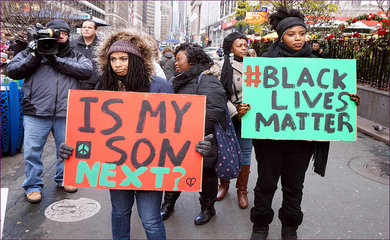When Michigan Governor Snyder first began installing emergency managers in different cities throughout the state, it couldn’t have been more deeply unpopular. The emergency managers came with the power to dissolve union contracts, eliminate deeply necessary social programs, and even eliminate city councils and/or mayors. In this union stronghold, that any single entity could walk in and simply end a union contract without an oversight or public dialogue was unconscionable. Vociferous protests ensued, including one protest in Benton Harbor, where Governor Snyder was booed loudly throughout an entire parade that he walked.
But then Snyder appointed an emergency manager to Detroit. And suddenly all those protests and outrage melted into a benign acceptance. Nobody liked emergency managers, but…this was Detroit. And wasn’t Detroit a despot of violence, corruption and welfare queens? Wasn’t it an abandoned wasteland? Didn’t it not only need an emergency manager–didn’t it sort of deserve one?
This narrative of black people being unusually violent, corrupt, and willfully poor (i.e. welfare queens, cultural laziness, people who refuse to work hard), is narrative that has justified everything from slavery to police violence. In Detroit, it took hold in the 70s, when Coleman Young became the first black mayor of Detroit. Young’s election coupled with the ‘67 Rebellion created a white panic that led to droves of white people leaving the city for the suburbs. And as white flight intensified and the city became more and more ‘black,’ the narrative only became more and more normalized, to the point that now, in 2014, Detroit as ‘violent’ or ‘culturally lazy’ is commonly understood as just the way it is. Normal.
So as the emergency manager began his job of cutting and slashing programs, the white suburbs cheered. That will force all the black people to get off their asses and get jobs! Right? As he began redirecting resources like the water/sewage department and the city’s extensive art museum to ‘regional control,’ the white suburbs assured the world that the moves would ‘save’ Detroit. Nobody liked the methods of the emergency manager, but if it ‘saved’ Detroit, it’d be worth it. Nobody needed to ask, “Save Detroit from whom?” because everybody knews the answer was ‘black people.’ Just the way it is. Normal.
And then the water crisis started. A program enacted by the emergency manager designed to collected outstanding water bills, required that anybody with a bill more than two months past due get their water shut off until paid. Local organizers immediately mobilized against the shut offs, pointing to how few poor people could afford to pay off their bills and what a crisis it would create to have thousands of people without running water.
Needless to say, reaction against the organizers was immediate. Comments sections, radio call in shows, and even op/ed sections were suddenly filled with outraged ‘it’s not a surprise’ that black people are ‘begging for free handouts,’ chatter. And over and over again, the constant justification: Water may be a human right, but it’s not free. ‘Detroiters’ can pay for water, they’re just choosing not to. Which means they don’t deserve water. They deserve the water shut offs. Just like they deserve the emergency manager and the loss of pensions.
It’s at this point that we’ve remained. Black people bearing the brunt of the violent takeover of the city. And white people justifying and supporting the take over because, well, black people deserve what they get.
Enter the #BlackLivesMatter protests. This movement began as an intervention against the ‘it’s not surprising’ attitude that many people stated after the George Zimmerman trial resulted in no conviction. Or, in other words, it wasn’t surprising that nobody was punished for murdering a black child, because black lives hold no value in the US. So it’s not surprising that there are no consequences for murdering a black person. The people who created the hashtag were adamant, we can no longer simply accept that black lives have no value.
Numerous #BlackLivesMatter events began cropping up throughout Michigan shortly after the protests in Ferguson, Missori started. While the protests largely addressed police brutality against the black community, #BlackLivesMatter also acted as a sort of justice centered metacritique of the constant anti-black justification the emergency manager.
Even as the refrain continued, “black people are lazy, black people don’t deserve water,” protesters across the state were saying in every way possible–through die ins, marches, rallies, art making–that black lives matter. In every way shape and form, black lives matter. This has served not just as intervention in the national narrative around police violence, but in the local narrative as well. Black lives matter. And so when a white police officer shoots a black person, there will be outrage until officers stop shooting black people. This will never ‘normal’ again. Just like it will never be ‘normal’ to refuse a black person water ever again.
By challenging the anti-black violence of the criminal ‘justice’ system, #BlackLivesMatter organizing is slowly building one of the most powerful leftist movements in Michigan. It is dismantling a narrative that has justified and applauded some of the most destructive violence Michigan has seen in recent years, and in it’s place, building a new normal. Black lives matter. The new normal in the US. And the new normal in Michigan.
Photo by The All-Nite Images, licensed under a Creative Commons Attribution-ShareAlike 2.0 Generic license

